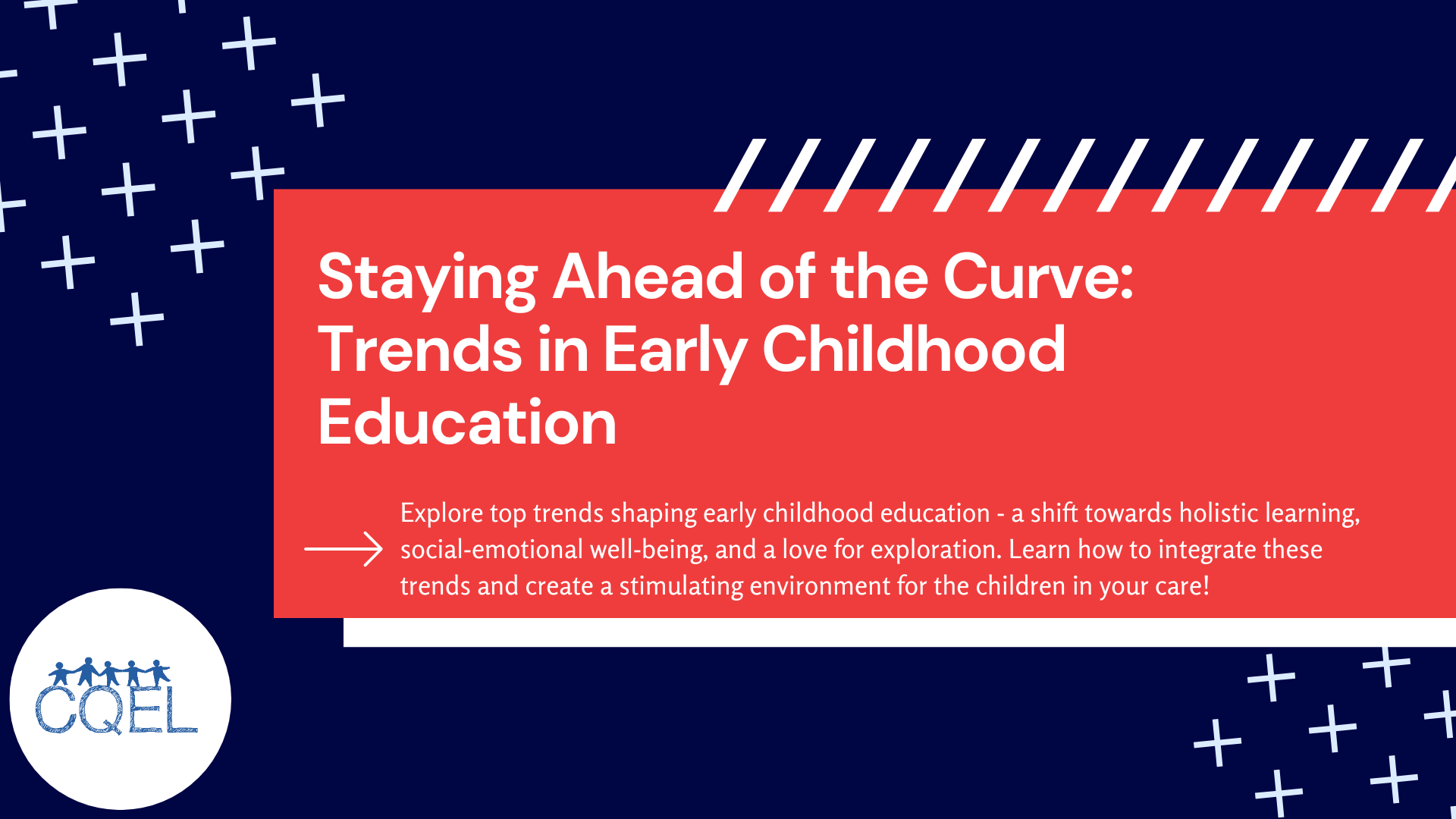Staying Ahead of the Curve: Trends in Early Childhood Education
Explore top trends shaping early childhood education - a shift towards holistic learning, social-emotional well-being, and a love for exploration. Learn how to integrate these trends and create a stimulating environment for the children in your care!

The world of early childhood education (ECE) is constantly evolving, embracing new ideas and best practices to nurture the development of young minds. As an aspiring childcare provider in California, staying informed about current trends is essential. These trends aren't just fads; they represent a shift towards a more holistic approach to learning, one that fosters not just cognitive development but also social-emotional well-being and a love for exploration. Let's delve into some of the key trends shaping the future of ECE and how you can embrace them to create a stimulating learning environment for the children in your care.
One of the most significant trends is the growing emphasis on the whole child. While academic skills are important, social-emotional learning (SEL) is taking center stage. SEL focuses on fostering emotional intelligence, self-regulation skills, and social competencies in young children. Imagine a classroom where children learn to identify their emotions, manage frustration in healthy ways, and collaborate effectively with peers. This can be achieved through mindfulness practices, group activities that encourage cooperation, and open discussions about feelings. By nurturing the whole child, you're setting them up for success not just in academics but also in navigating the social and emotional complexities of life.
Technology is another force shaping the landscape of ECE. Interactive whiteboards, age-appropriate apps, and educational software can be powerful tools when used thoughtfully. The key lies in choosing technology that aligns with learning objectives and is developmentally appropriate. Imagine using a touch-screen app to help children identify letters and sounds, or using a simple camera to document their explorations in the outdoor classroom. Technology can promote individualized learning, spark creativity through animation and digital storytelling, and even foster global connections through video conferencing with children from other cultures. However, it's crucial to remember that technology should never replace the power of hands-on learning and social interaction.
The importance of play-based learning is experiencing a well-deserved resurgence. Open-ended play materials like blocks, dramatic play props, and art supplies allow children to explore their imaginations, experiment with ideas, and solve problems creatively. Think about a group of children building a spaceship out of large blocks – they're not just playing; they're developing spatial reasoning skills, collaborating with peers, and using their imaginations to embark on a pretend journey. While structured learning activities have their place, balancing them with ample opportunities for open-ended play is essential for fostering a love of learning and nurturing a child's natural curiosity.
Stepping outside the classroom walls is another exciting trend in ECE. The great outdoors offers a wealth of learning opportunities. Spending time in nature promotes physical activity, fosters a connection with the environment, and even reduces stress levels. Imagine a nature walk where children can collect leaves, identify different types of trees, and observe the behavior of insects. Creating a safe and stimulating outdoor learning environment, whether it's a dedicated nature play space or simply incorporating outdoor time into the daily routine, allows children to learn through exploration and connect with the natural world around them.
California is at the forefront of many early childhood education initiatives. The California Department of Education's Early Learning and Development Standards (https://www.cde.ca.gov/sp/cd/re/) outline a framework that incorporates many of the trends discussed here, such as social-emotional learning and providing opportunities for exploration and play.
The world of ECE is dynamic and ever-changing. By staying informed about current trends and embracing them in your classroom, you can create a well-rounded learning environment that fosters not just academic skills but also social-emotional well-being, a love for exploration, and a connection with the natural world. Remember, as an aspiring childcare provider, you have the opportunity to make a lasting impact on the lives of young children. Embrace lifelong learning, stay curious, and continue seeking knowledge and best practices to become the best educator you can be. After all, the future of early childhood education is bright, and you have a role to play in shaping it!
pen_sparkcircle
